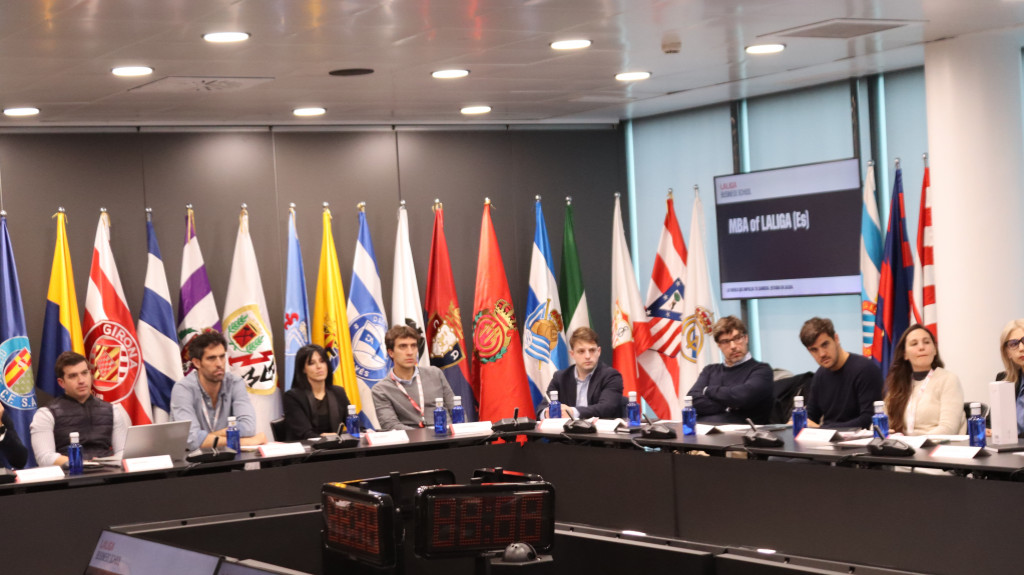General
Sports Coordinator: Who They Are and Their Main Functions
October 20, 2025, Madrid
Discover what a sports coordinator does, their main functions, and how the job of a sports coordinator works across different institutions.
In the world of sports management, the role of the sports coordinator is key to ensuring that clubs, academies, federations, and sports centers operate efficiently. This professional combines organization, strategic planning, and supervision of activities to guarantee that daily operations run smoothly.
If you are interested in deepening your knowledge of sports management and leadership, you can take the next step with our MBA at LaLiga Business School, where you will learn how to manage teams, resources, and sports projects with a global and innovative vision.
What is a Sports Coordinator?
A sports coordinator is the professional responsible for planning, organizing, and supervising sports activities within an institution. Their main goal is to ensure that competitions, training sessions, events, and both human and material resources are managed effectively.
Essentially, they act as a bridge between the institution’s management and coaches, athletes, families, and technical staff. This means their work is not only administrative but also carries a strong human component.
Main Functions of a Sports Coordinator
The functions of a sports coordinator vary depending on the size and type of organization (professional clubs, training academies, municipal sports centers, or federations), but usually include:
Planning and Organizing Activities
The coordinator designs training calendars, competitions, and events to ensure that institutional goals are met.
Human and Material Resource Management
They supervise coaches, referees, and instructors while ensuring that facilities and equipment are available and in good condition.
Internal and External Communication
They act as a liaison between executives, coaches, athletes, and families, resolving conflicts and ensuring smooth communication.
Budget Control
In many cases, they must manage budgets for activities, competitions, and facilities, ensuring resources are used efficiently.
Innovation and Continuous Improvement
Today’s sports coordinators must also embrace digital transformation, adopting technological tools to improve organization, communication, and performance monitoring.
The Sports Coordinator’s Job in Different Contexts
In Professional Clubs
In elite teams, the sports coordinator works closely with the sporting director to structure squads, organize travel, plan training, and manage competition logistics.
In Training Academies
In formative settings, their role is focused on coordinating coaches, designing sports programs adapted to different age groups, and ensuring a healthy and educational environment.
In Municipal Sports Centers
Here, the coordinator manages a wide variety of sports activities open to the public, ensuring service quality and user satisfaction.
In Federations and Associations
Their work is more connected to organizing championships, development programs, and coordinating national teams.
Skills Needed to Become a Sports Coordinator
The profile of a sports coordinator requires both technical skills and soft skills:
-
Leadership: essential for guiding teams and making decisions.
-
Organization: the ability to design calendars, coordinate people, and manage resources.
-
Effective communication: motivating athletes while negotiating with executives and families.
-
Conflict resolution: handling tensions and unexpected situations effectively.
-
Knowledge of the sports sector: understanding the dynamics of each discipline and its specific needs.
-
Digital tools proficiency: managing data, analyzing performance, and using online communication platforms.
Practical Example of a Sports Coordinator’s Job
Let’s imagine a season plan for a grassroots football club. The sports coordinator would:
-
Design the training and match calendar for each category.
-
Assign coaches according to their level and expertise.
-
Ensure facilities and equipment are ready.
-
Communicate with families about schedules and trips.
-
Manage the budget for materials and travel.
-
Evaluate results at the end of the season and propose improvements for the next.
This example illustrates the balance between administrative management and human leadership that defines this role.
The Future of the Sports Coordinator in the Digital Era
The sports coordinator role is evolving with digital transformation. Nowadays, it is common to use sports management software, mobile apps for training schedules, and performance analysis platforms.
The introduction of artificial intelligence (AI) also helps automate administrative tasks and deliver more accurate insights for planning and resource optimization. This makes the coordinator a key figure in the modernization of sports institutions.
How to Become a Sports Coordinator
To become a sports coordinator, specialized training is essential. Programs such as the MBA in Sports Management at LaLiga Business School provide the necessary skills in leadership, innovation, and project management.
This type of academic background equips professionals with the tools to efficiently lead sports organizations with a strategic vision.
The sports coordinator is an indispensable figure in any sports organization. Their role ensures smooth operations, resource optimization, and continuous improvement.
In an increasingly professionalized sector, technological innovation and digital transformation strengthen the importance of this role, which will continue to grow in the years ahead.






